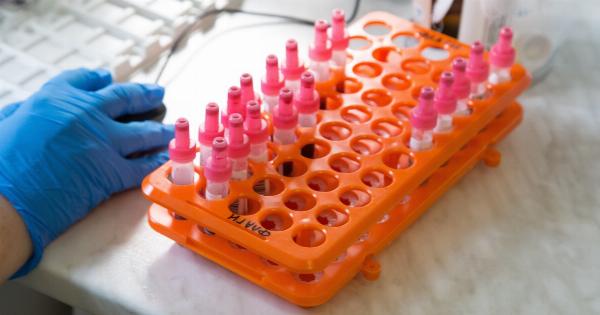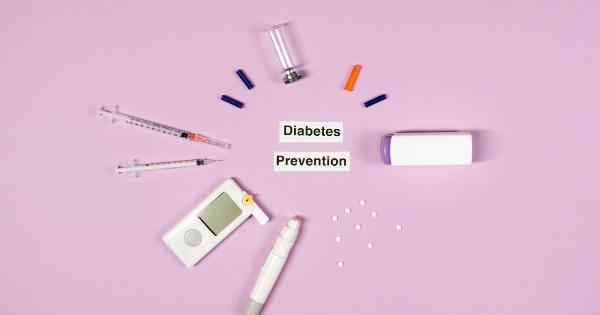Roche, a global leader in pharmaceuticals and diagnostics, has recently introduced a new diagnostic test that is designed to analyze plasma samples and tumor tissue.
The test is expected to revolutionize the process of cancer diagnosis and treatment by providing a more efficient and accurate approach to detecting various types of cancer.
What is the New Exam?
The new exam, which is known as the Cobas EGFR Mutation Test v2, is an advanced diagnostic tool that utilizes innovative techniques to identify mutations in the epidermal growth factor receptor (EGFR) gene.
This gene is found in various types of tumors, including non-small cell lung cancer (NSCLC), which is one of the most common forms of lung cancer.
The Cobas EGFR Mutation Test v2 is designed to analyze plasma samples and tumor tissue and is capable of detecting 42 different mutations in the EGFR gene.
The technology used in the test is based on polymerase chain reaction (PCR), a widely used method in molecular biology that amplifies a specific DNA segment. The technology is highly accurate and sensitive, which makes it an invaluable tool for cancer diagnosis and treatment.
The Benefits of the New Exam
The introduction of the Cobas EGFR Mutation Test v2 is expected to have a significant impact on cancer diagnosis and treatment. The test offers several benefits that are not available with traditional diagnostic methods, including:.
Increased Sensitivity
The Cobas EGFR Mutation Test v2 is more sensitive than traditional diagnostic tests, which allows for the detection of lower levels of tumor DNA.
This increased sensitivity is critical for diagnosing cancer at an earlier stage, when treatment is more effective.
Improved Accuracy
The Cobas EGFR Mutation Test v2 is highly accurate, which reduces the risk of false positive or false negative results.
The test is capable of detecting mutations in a wide range of tumor samples, which makes it more versatile than other diagnostic tests.
Faster Results
The Cobas EGFR Mutation Test v2 delivers results in as little as three hours, which is significantly faster than traditional diagnostics that can take several days or even weeks to deliver results.
The faster turnaround time is particularly important for cancer patients, who need prompt diagnosis and treatment.
Targeting Non-Small Cell Lung Cancer
The Cobas EGFR Mutation Test v2 is primarily designed to target non-small cell lung cancer (NSCLC). It is estimated that NSCLC accounts for approximately 85% of all lung cancer cases, and early detection is critical for successful treatment.
The new test offers several advantages over traditional diagnostic methods for NSCLC, including:.
Improved Detection
The Cobas EGFR Mutation Test v2 is capable of detecting EGFR mutations in plasma samples and tumor tissue, which makes it a more efficient diagnostic test than traditional methods.
The test is highly accurate and can detect mutations in as little as 0.02% of tumor DNA, which increases the chances of early detection.
Targeted Treatment
The identification of EGFR mutations with the new test allows for targeted treatment of NSCLC.
Patients with EGFR mutations are more likely to respond to specific drugs that block EGFR activity, which can significantly improve their chances of survival.
Reduced Risks
The new test also reduces the risks associated with traditional diagnostic methods for NSCLC, such as bronchoscopy and biopsy. These procedures can be invasive and carry the risk of complications, such as bleeding and infection.
The Cobas EGFR Mutation Test v2 is a non-invasive procedure that only requires a blood sample or a small tissue sample, which reduces the risks for patients.
The Future of Cancer Diagnosis and Treatment
The introduction of the Cobas EGFR Mutation Test v2 is a significant step forward in cancer diagnosis and treatment.
The test offers a more efficient, accurate, and faster approach to detecting EGFR mutations in plasma samples and tumor tissue, which can lead to earlier detection and targeted treatment of cancer.
Roche is committed to developing innovative diagnostic tests and treatments for cancer and other diseases. The new test is just one example of Roche’s commitment to improving patient outcomes through advanced technology and research.





























